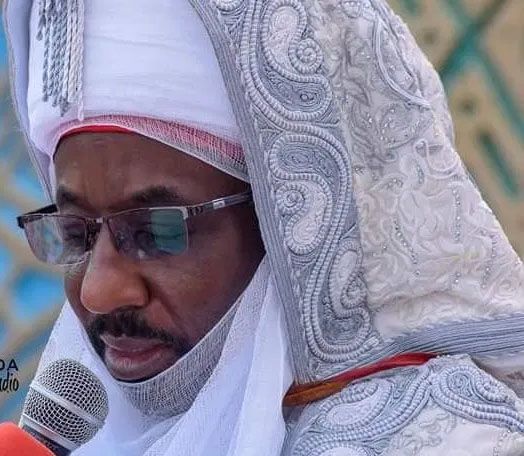The former Emir of Kano, Lamido Sanusi, has said that Nigeria will continue to struggle with funding education, if the country fails to check her population growth.
Mr Sanusi spoke Wednesday during a discussion with other panel members at the ongoing Lagos Economic Summit tagged Ehingbeti 2021.
He said although the federal government is doing its bit in child nutrition through the school feeding initiative, some problems persist in the educational system.
“We need to recognise that Nigeria is one country but different parts have these problems to different degrees,” said Mr Sanusi, a former Central Bank of Nigeria governor.
“The whole structure of family and the idea that people can marry any number of wives they want, without any regulation and produce any number of children and not educate them is there.
“We can tell the government to spend more on education, but if people are going to produce 20, 30 children without being able to educate them, I maintain that the government cannot keep up with the pace,” he said.
Mr Lamido said people have to understand their responsibilities in terms of family structure, child spacing, family planning and responsibilities of parents to produce good human capital outcomes.
He said, to have good human capital development, Nigeria must begin to focus on appropriate education, awareness and regulations.
Other members of the panel included Folashade Adefisayo, the Lagos State Commissioner for Education; Chukwuemeka Nwajiuba, the Minister of State for Education; Abubakar Suleiman, the Managing Director Sterling Bank, among others.
The discussion was themed ‘Roadmap to Shared Prosperity – Ensuring Inclusive Human Capital Development.’
In her contribution, Mrs Adefisayo said there was clearly a disruption in the educational system and there are opportunities to make changes.
“Essentially, our education system, as we have found out as a result of COVID-19 and other realities is becoming obsolete, if it is not already obsolete.
“When we turn out graduates from schools, we find out that many of the graduates are not able to function in the environment they find themselves,” she said.
The Commissioner further said parents need to address why they send children to school and have the right priorities.
Mr Suleiman said it was unfortunate that the money spent on human capital in Nigeria is not regarded as capital expenditure (Capex).
He said the money spent on education is capital expenditure and the Nigerian government should focus on human capital development through education.
The Managing Director said none of the reasons the Nigerian government borrows money is as important as borrowing to invest in the education of children and youth who are going to pay back.
“I do not believe that there is any child whose education cannot be funded. The idea that we do not have enough money to fund education is a misnomer because any country that has the capacity to borrow money, of all the reasons to borrow, none is more compelling than investing in education of the young people who are going to pay back that money,” he said.
Mr Suleiman said with the appropriate structure, the government should seek to provide education for everyone in the society to develop human capital.
He further said education through school is not enough, saying Nigerians must begin to actively acquire skills with which most societies are built.
“There is a fundamental defect in not working while schooling, we need to ‘think of education as something that you learn while you are doing’. Professions are combinations of learning and doing and the world is moving very fast,” he said.
Mr Suleiman added that the resources in the education system are not sufficient to run the system.
“Every parent is a teacher, unfortunately, we have not spent much time and resources in making them effective teachers,” he said.



